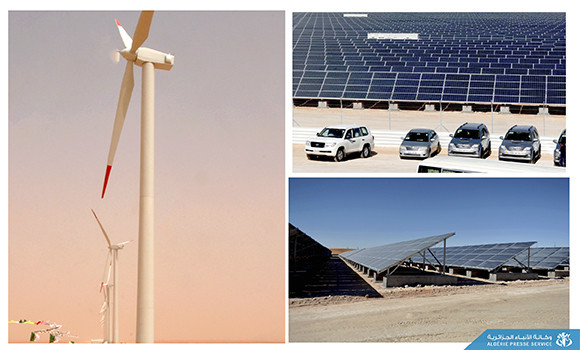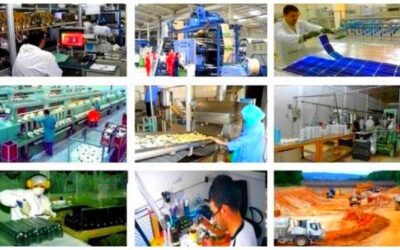Renewable energy: Algeria has Africa’s third largest installed capacity in 2020

APS : WEDNESDAY 16 JUNE 2021
ALGIERS – Algeria has Africa’s third largest installed capacities in renewable energy with 0.5 gigawatts (GW) in late 2020, after South Africa and Egypt, said the REN21’s Renewables 2021 Global Status Report.
In the end of last year, the African countries with the largest capacities are South Africa with 3.8 GW, Egypt with nearly 2 GW and Algeria with 0.5GW, said the REN21 report bringing together scientists, governments, NGOs and industrialists.
Several countries in Africa commissioned new capacities in 2020, said the document.
“West Africa’s largest plant (50 MW) came online in Mali, where hydropower accounts for around half of the country’s installed capacity but provides increasingly variable output due to hydrological changes,” it noted.
Medium to large-sized projects have been commissioned or started to be built in several other countries, including Egypt, Ethiopia, Ghana, Somalia and South Africa, REN21 said, adding that in Egypt, “the government’s gradual removal of subsidies on retail electricity prices is increasing the appeal of distributed solar PV for residential, commercial and industrial uses.”
In this regard, the report states that the company, Mondragon Assembly (Spain) has provided assembly lines for new module production facilities in Algeria and Egypt during the past year.
== Record of new capacities in the world in 2020 ==
Moreover, despite the impacts of the Covid-19 pandemic, renewable energies set a world record for new electricity capacity in 2020. They were the only source of electricity production to record a net increase in total capacity, revealed the report.
The global renewable energy capacity installed until the end of 2020 is estimated at 2,838 GW. More than 256 GW were added worldwide in 2020.
“Investment in renewable energy capacity increased, albeit slightly, for the third year in a row, and companies continued to break records for renewable electricity supplies,” the same source noted.
More and more countries have turned to renewable energies.
Although the production of biofuels for transportation has declined, sales of electric vehicles (EVs) have increased, as has the combination of EVs and renewable energy to a lesser extent.
China was among the countries that strengthened their commitments to action on the climate crisis, setting a carbon-neutral target. The United States re-joined the Paris Agreement in early 2021. Previous obstacles to progress in the renewable energy sector persisted during 2020, said the report.
They include the slow increase in the share of renewables in total final energy consumption (TFEC), inadequate innovation in some sectors, the need for infrastructure development, the lack of affordability in some markets, the absence of sufficient policy and enforcement, and ongoing support for fossil fuels, concluded the REN21.
“The electricity sector has made considerable progress. Almost all new electrical installations in the world are renewable,” the document said, noting that the share of electricity in the transport sector remains “low and has only increased very little.”
Categories
Recent Posts
- Mr Attaf receives Speaker of Canadian House of Commons
- Meeting of the Ambassador in Sofia with the Mayor of Sofia
- Mr Attaf receives the Director General of the ILO
- Algeria/South Africa: Second session of political consultations
- Minister Attaf takes part in a discussion session on the implementation of the UN’s ten-year objectives for sustainable energy






